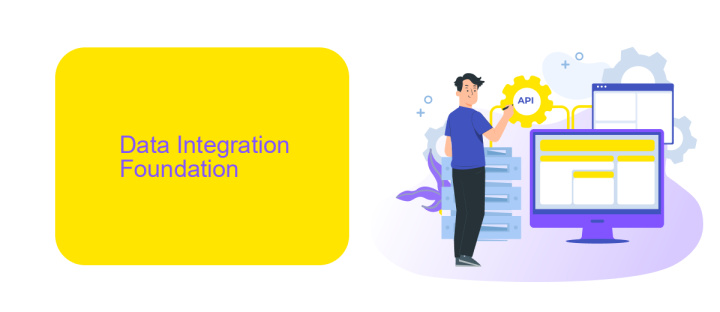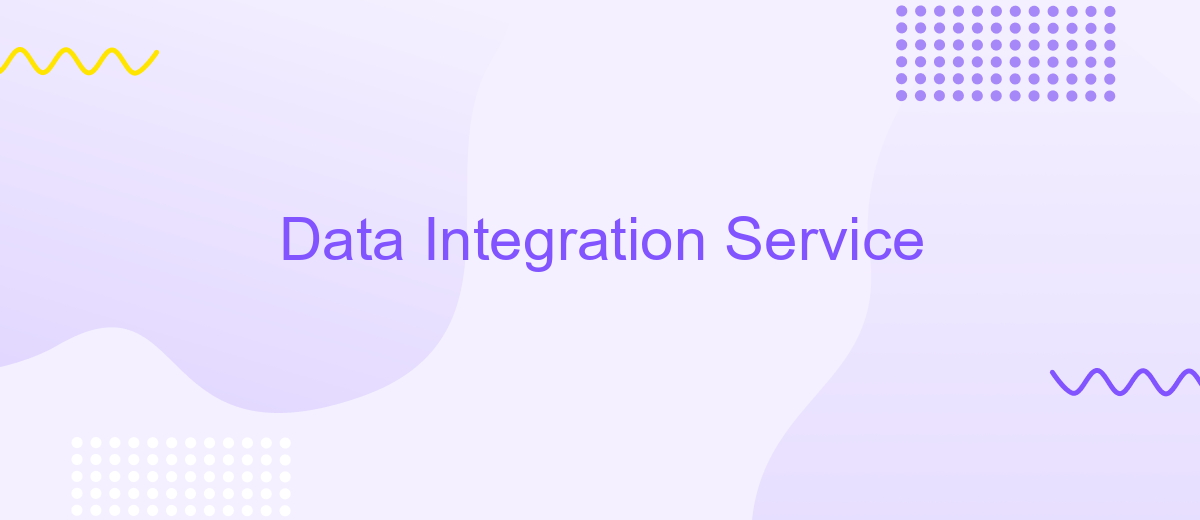Data Integration Service
In today's data-driven world, the ability to seamlessly integrate diverse data sources is crucial for informed decision-making and operational efficiency. Data Integration Services provide robust solutions for merging, transforming, and managing data from various platforms, enabling businesses to unlock valuable insights and streamline processes. This article explores the key benefits, challenges, and best practices in implementing effective Data Integration Services.
Overview
Data Integration Service is a crucial component in modern data management, enabling seamless connectivity between disparate data sources and systems. It facilitates the extraction, transformation, and loading (ETL) of data, ensuring that information flows smoothly across various platforms, enhancing data accessibility and reliability.
- Automates data synchronization between different systems
- Ensures data accuracy and consistency
- Reduces manual data entry and associated errors
- Supports real-time data integration for timely insights
- Scales with growing data needs and complexities
Services like ApiX-Drive simplify the integration process by providing user-friendly tools to connect and automate workflows between applications. ApiX-Drive supports a wide range of integrations, making it easier for businesses to manage their data without extensive technical expertise. By leveraging such services, organizations can focus more on deriving value from their data rather than dealing with integration challenges.
Data Integration Foundation

Data Integration Foundation is the cornerstone of any robust data management strategy. It encompasses the essential tools, methodologies, and practices required to seamlessly combine data from disparate sources into a unified, coherent dataset. This foundation ensures that data is accurate, consistent, and readily accessible for analysis, reporting, and decision-making processes. By establishing a strong data integration foundation, organizations can eliminate data silos, enhance data quality, and improve operational efficiency.
One effective way to build a solid data integration foundation is by leveraging specialized services like ApiX-Drive. ApiX-Drive offers a user-friendly platform that simplifies the integration process, enabling businesses to connect various applications and data sources without the need for extensive coding or technical expertise. With features such as automated data synchronization, real-time updates, and customizable workflows, ApiX-Drive ensures that data flows seamlessly across systems, empowering organizations to harness the full potential of their data assets. By incorporating such services, businesses can streamline their data integration efforts and focus on deriving actionable insights from their unified data.
Data Integration Tools

Data integration tools play a crucial role in streamlining the process of combining data from different sources into a unified view. These tools help organizations to efficiently manage, transform, and analyze data, ensuring that it is accurate and accessible. They are essential for businesses that rely on data-driven decision-making processes.
- ETL Tools (Extract, Transform, Load): These tools extract data from various sources, transform it to fit operational needs, and load it into a data warehouse. Examples include Apache NiFi, Talend, and Informatica.
- Data Replication Tools: These tools replicate data from one database to another, ensuring that the data remains consistent across multiple locations. Examples include HVR Software and Qlik Replicate.
- Data Virtualization Tools: These tools provide a virtual view of data from multiple sources without physically moving it, enabling real-time data access. Examples include Denodo and Red Hat JBoss Data Virtualization.
- iPaaS (Integration Platform as a Service): These cloud-based services facilitate the integration of applications and data across different environments. ApiX-Drive is an example of an iPaaS that simplifies the process of connecting various applications and automating workflows.
Choosing the right data integration tool depends on the specific needs of an organization, such as data volume, complexity, and the required level of automation. By leveraging these tools, businesses can ensure seamless data flow, improve data quality, and enhance overall operational efficiency.
Data Governance

Data governance is a critical aspect of data integration services, ensuring that data is accurate, consistent, and secure across the organization. Effective data governance provides a framework for managing data assets and establishing data quality standards, which helps in maintaining the integrity of the integrated data.
Implementing robust data governance practices involves defining clear policies and procedures for data management. This includes assigning roles and responsibilities, setting data access controls, and establishing data stewardship programs. By doing so, organizations can mitigate risks associated with data breaches and ensure compliance with regulatory requirements.
- Define data ownership and stewardship roles
- Establish data quality metrics and monitoring processes
- Implement data access and security controls
- Ensure compliance with data privacy regulations
Using tools like ApiX-Drive can facilitate the integration process while adhering to data governance standards. ApiX-Drive offers features that automate data synchronization between various systems, ensuring that data remains consistent and up-to-date. By leveraging such services, organizations can streamline their data integration efforts while maintaining high standards of data governance.
- Automate the work of an online store or landing
- Empower through integration
- Don't spend money on programmers and integrators
- Save time by automating routine tasks
Key Benefits
Data Integration Service offers a streamlined approach to consolidating data from various sources, enhancing data accuracy and accessibility. By automating data workflows, businesses can significantly reduce manual data entry, minimizing errors and saving valuable time. This service ensures that all data is up-to-date and consistent across different platforms, which is crucial for informed decision-making and strategic planning.
Moreover, tools like ApiX-Drive simplify the integration process by providing a user-friendly interface to connect diverse applications without requiring extensive coding knowledge. This not only accelerates the integration process but also makes it accessible to non-technical users. As a result, organizations can achieve seamless data synchronization, leading to improved operational efficiency and better customer insights. Overall, the key benefits of a Data Integration Service include enhanced data reliability, time-saving automation, and simplified integration capabilities.
FAQ
What is Data Integration Service?
Why is Data Integration important for businesses?
How does Data Integration Service work?
What are the common challenges in Data Integration?
Can automation tools help in Data Integration?
Time is the most valuable resource for business today. Almost half of it is wasted on routine tasks. Your employees are constantly forced to perform monotonous tasks that are difficult to classify as important and specialized. You can leave everything as it is by hiring additional employees, or you can automate most of the business processes using the ApiX-Drive online connector to get rid of unnecessary time and money expenses once and for all. The choice is yours!


